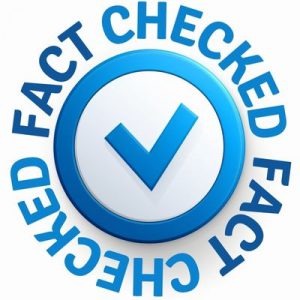What is Spiritual Entrepreneurship?

Published July 5, 2022
We all know what entrepreneurship is. When you run a business or any money-making endeavor, you can call yourself an entrepreneur. But have you ever heard about spiritual entrepreneurship?
If you’ve been thinking about starting a social enterprise, you’ve probably heard about this term at least once. You might also be wondering about what it means.
No worries. That’s what this post is for.
If you’re planning to become a spiritual entrepreneur, here’s what you need to know about spiritual entrepreneurship.
What Exactly is Spiritual Entrepreneurship?
In a nutshell, spiritual entrepreneurship is about letting yourself become God’s instrument in improving the lives of the people around you. Some people may also define it as any endeavor that puts people over profits. It can also be something that is intended to make a difference in the world.
Though the definitions vary, one thing is clear: spiritual entrepreneurship is about serving God and His people. While traditional entrepreneurship focuses on making profits, a spiritual business is geared towards improving humanity as a whole.
The term might sound relatively new to you. But the concept of spiritual entrepreneurship had been around since man learned to worship a higher power. From the poorhouses in ancient times to the charitable organizations in the modern world, spiritual entrepreneurs had been changing the world since time immemorial.
Currently, however, there’s no consensus as to what qualifies an endeavor as spiritual entrepreneurship. In fact, there’s no need to run a business or any money-making venture to be a spiritual entrepreneur.
Remember that the whole point of spiritual entrepreneurship is not to make money but to make the world a better place. So there’s a good chance that you’re already a spiritual entrepreneur and just don’t realize it.

What Being a Spiritual Entrepreneur Entails
As I’ve said, spiritual entrepreneurship is about making life better for others. But there’s more to being a spiritual entrepreneur than that. It also entails:
- finding your purpose and helping others find theirs
- using your talents to benefit the people around you
- putting other people’s welfare over yours
- dedicating your life to serving others
- inspiring others and leading by example
- forgoing profits to help others
If you think you can do the things mentioned above, then you are ready to become a spiritual entrepreneur.
What to Know Before Starting a Spiritual Business
Obviously, starting a spiritual business may differ from that of a traditional business. So before starting your business, here are some things you need to know:
1. A spiritual business doesn’t necessarily involve traditional spiritual work.
When we hear the word “spiritual business”, we often think of services like that of a tarot reader, healer, spiritual coach, and the like. But if the business you’re planning isn’t in line with these types of businesses, it’s fine too.
A spiritual business isn’t limited to traditional spiritual work. If you go back to the definition of spiritual entrepreneurship, it’s an endeavor geared towards making a difference in the world. And there are many types of businesses that meet this definition.
A non-profit school, for instance, can be a type of spiritual business. Organic farms and farmers’ markets can be a spiritual business too.
So don’t worry if you’re not that connected with your spiritual self. As long as you stick to your goal of making the world a better place, any endeavor can be a spiritual business.
2. Manage your expectations.
This is one of the things you should remember before starting a business – any kind of business. You see, most people equate business with financial freedom. But financial success isn’t always guaranteed in business, especially a spiritual business.
As mentioned, the main difference between a traditional and spiritual business is that the latter isn’t profit-oriented. So most of the time, you won’t make a profit or even get paid for your efforts. If you’re not that financially stable yet, you might want to think about getting a second, more stable source of income.
3. Make sure that your products or services are in line with your passion.
The secret to success for any kind of business is passion. This is especially true for spiritual businesses since it doesn’t provide much in the way of financial rewards. When the going gets tough, only your passion can sustain you.
This is why you need to make sure that the products or services you’re offering are in line with your passion. There will be days when you’ll feel like giving up but if you really like what you do, you’ll find a reason to keep going.
4. Envision your goals.
Before you start your business, ask yourself: what do you want to achieve by doing this? Envision the goals you want to set for your business. Where do you want to take this enterprise, say, ten years from now? Your answers to these questions will help guide you in making decisions.
Is Spiritual Entrepreneurship For You?
Starting a business, spiritual or not, is never a walk in the park. But it can be especially hard for spiritual entrepreneurs. After all, changing the world is not an easy task. It’s not done in a day either. So be patient. Take it one step at a time, trust God, and focus on your goals. One day, it will all fall into place.
(Related: How to Be a Good Citizen in 14 Ways?)
Donate To The Poor & Homeless Of South Florida
Our Father’s House Soup Kitchen has fed the poor and homeless in South Florida over 900,000 hot meals since 1993. Our tax deductible non profit organization also accepts and distributes donations such as clothing, toiletries, shoes, bicycles, and more. You can donate to help the poor and homeless through our website.

Reviewed For Factual Accuracy
Our team meticulously fact-checks all website content before publishing. Discover more about our website’s editorial standard here and the dedication we uphold.

About The Author
Judy Ponio is a professional writer and devoted Christian. She has a passion for writing about topics related to morality and helping the poor and homeless. She is the lead author for the Our Father’s House Soup Kitchen blog.
Correct Digital, Inc is paid by private donors to provide website digital marketing services to this non-profit organization.





